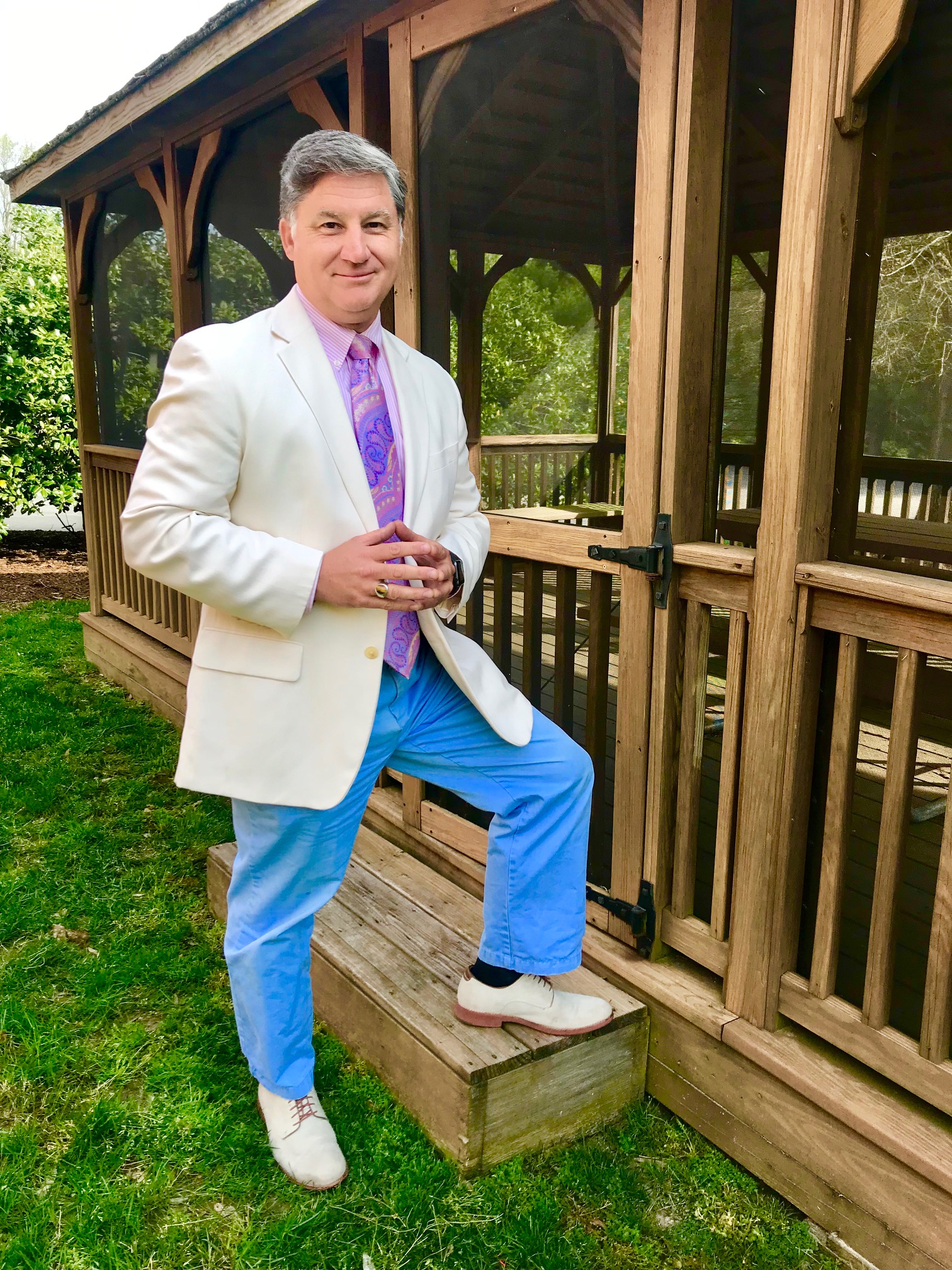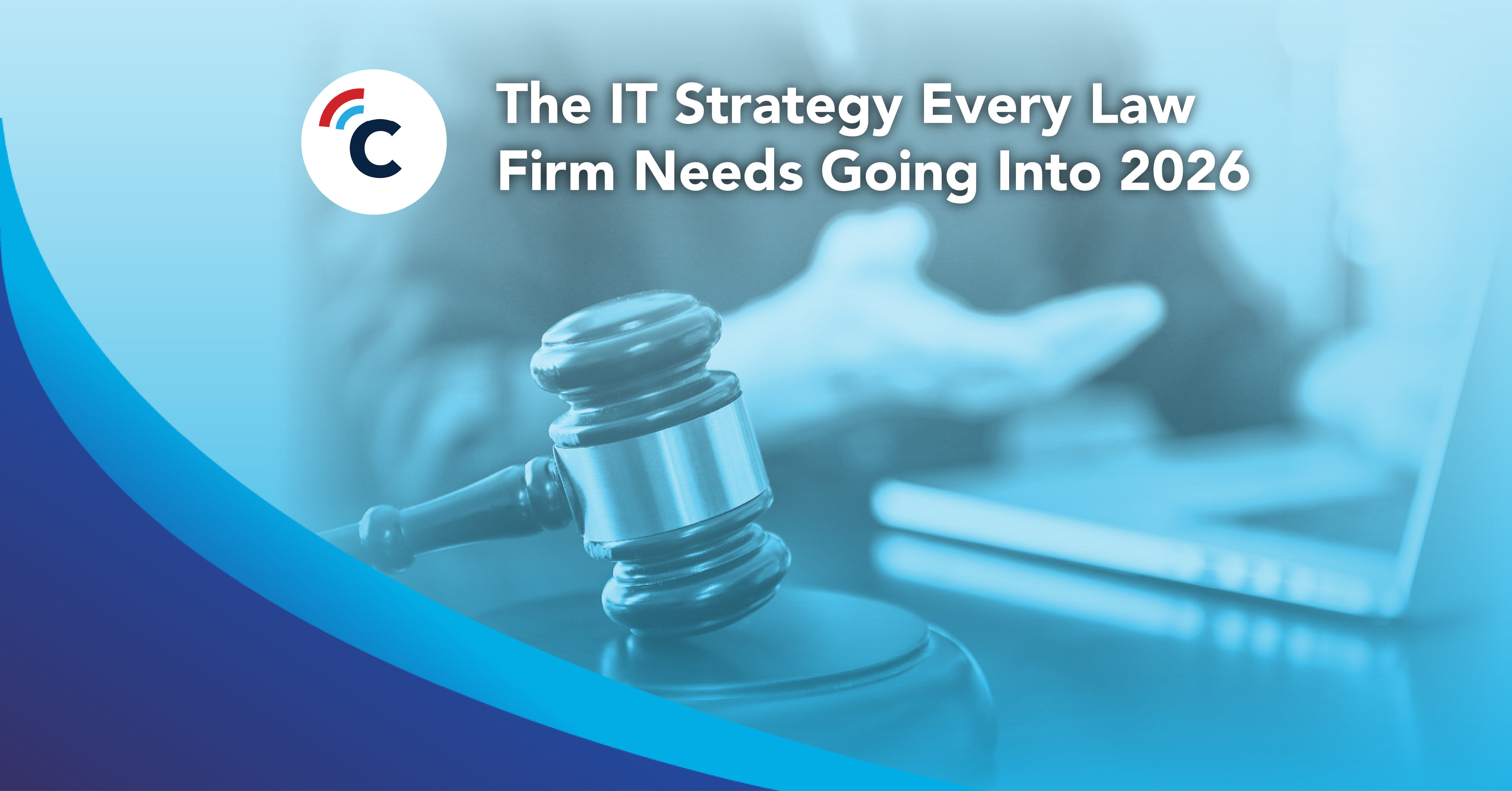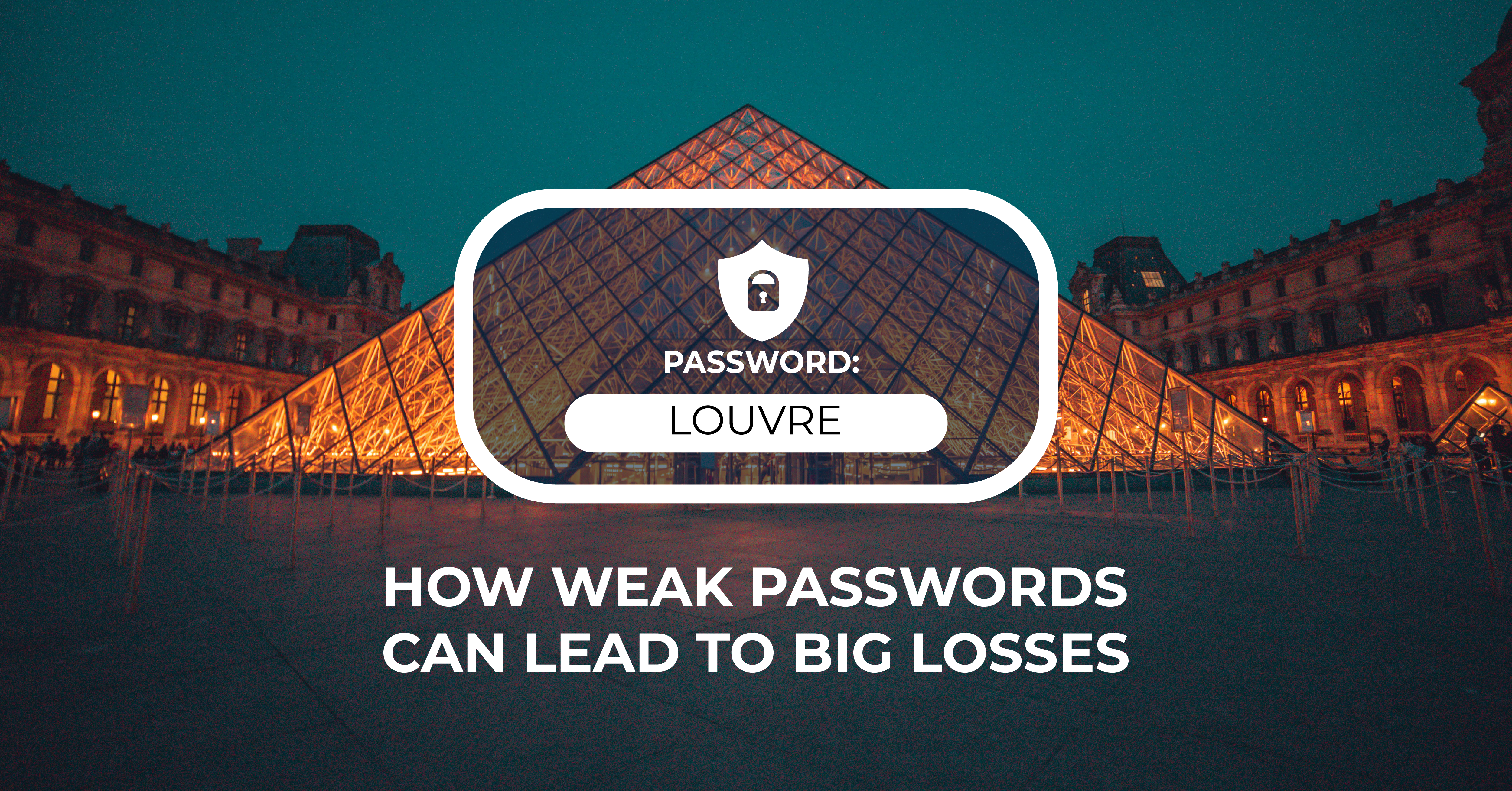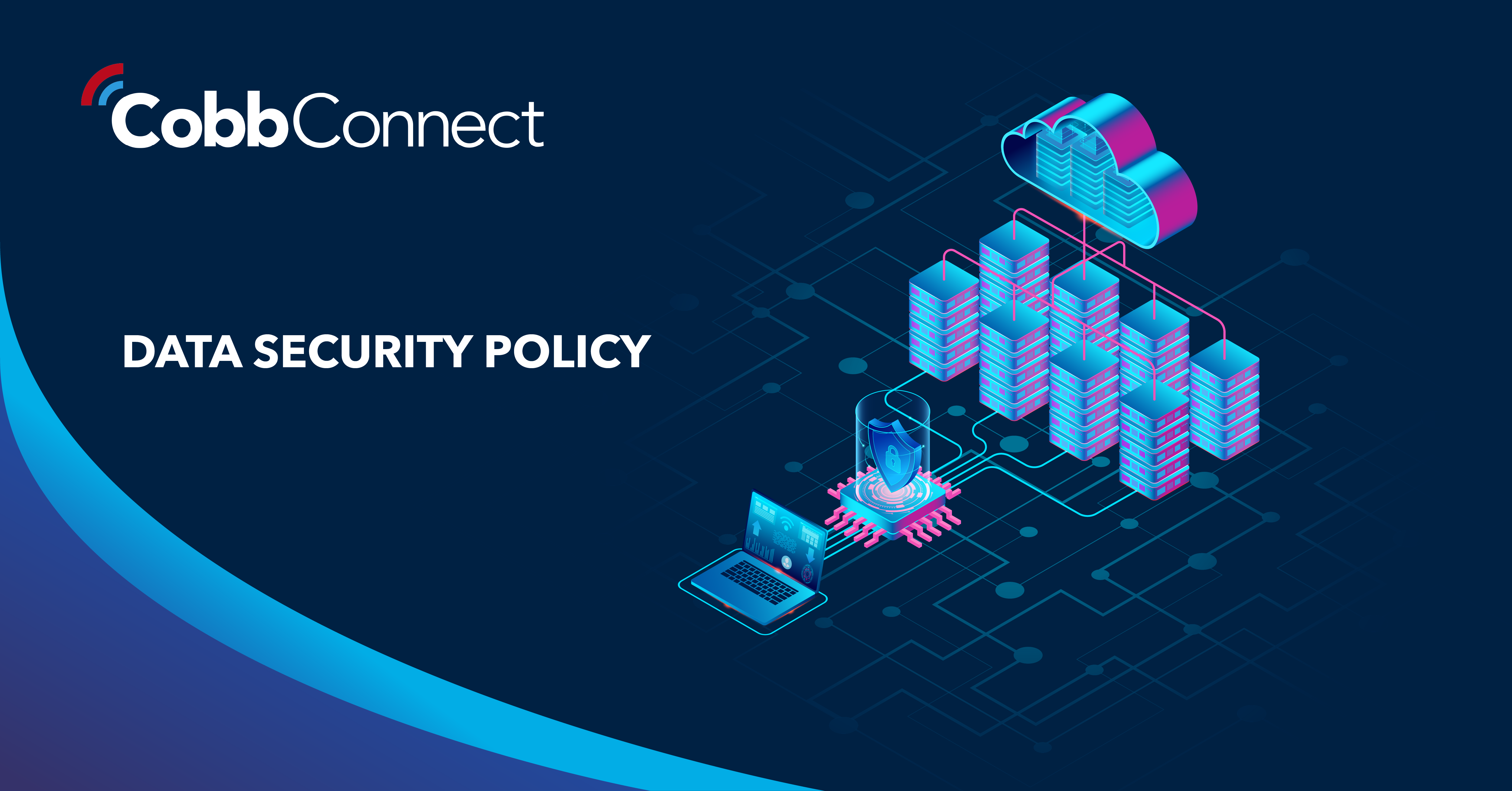11 min read
Best IT Strategies for Law Firms Going Into 2026
Why should a law firm invest in a strong modern IT strategy? Today’s legal teams depend on secure, reliable technology to protect sensitive...

Well, we’re still working from home! Last time we had a chat with one of our service technicians, Billy Ju. This time, I sat down with Senior Business Improvement Specialist, Peter Larsen — virtually, of course.
Peter has been a member of the Cobb Team for twelve years — something he’s proud of, and we’re thankful for. A bit of background on Peter in case you don’t know him; for those past twelve years of working with Cobb, Peter has attended three-to-seven networking events every week. He’s also a top sales performer, networking guru, social media influencer, and family man.
Oh — and each tie he wears (which he does every day) has a story to go with it. If you ever get the chance to ask him about one, you won’t be disappointed.
It was on a Thursday afternoon that I spoke with the Richmond-networking-legend that is Peter Larsen — my makeshift work-from-home office space immediately brightened by his virtual presence.
Peter, what does a normal day for a senior business improvement specialist look like?
My normal day is operating as a hunter, and as a farmer in the outside sales world. I’m a hunter because I’m always hunting for new prospects, for new customers, for new people to help. I’m also a farmer, because I’m thankful to have one hundred or so accounts that I take care of, and so I need to farm them — pulling weeds so to speak, and maintaining relationships.
The “spear” that I use for hunting is a spear of true care for the customer. I use my shepherd’s staff to help guide my customers — when they’re confused about a bill, or a machine requires maintenance — I have to use my staff, and gently reassure them.
With that, how has that changed with the remote work situation?
On the hunting, my spear has to go about ten miles, rather than ten feet. LOL! I’m not hunting in the same way — however, I still am hunting. Coronavirus doesn’t stop a hunter. A real hunter hunts regardless. Going through the annals of history, you’ll find there are all kinds of plagues and kinds of things — when bad things happen, the hunter still gets up, and has to hunt.
Hunting now is more compassionate, more empathy based, and it’s gentler. Before COVID-19, I was never aggressive, but I’m tenacious, and I pursue constantly. Right now, people are being pursued by some pretty serious things — and I don’t want to be adding on to somebody’s stress.
I use social media, email, video — I’ve been creating a video series. And then farming! Farming is still important — people are confused, I’m getting questions like “What do I do?” “How do I handle this?”… and so I spend a lot of time reassuring, bringing solutions, and new ideas to existing customers, so they continue to function.
You mentioned both social media and compassion. How do you translate compassion through a medium like social media?
The things that we say, and the way that we say it, the punctuation, the wording — you have to be a really skilled wordsmith. In this economy, people are very sensitive — more so than usual. And most of the sensitivity is rooted in fear, and insecurity. So when you have somebody who is feeling insecure in their business, the way that I design my social media hunting is more based around compassion and understanding - honestly I don’t know what they’re going through — I don’t fully understand their business. I don’t start emails with “I understand what you’re going through.”
Because I don’t. I don’t. I see very little of what’s happening in a business — but I can phrase it, “I imagine you’re going through a difficult time right now.” Those words — “I imagine,” versus “I know what you’re going through,” is making a big difference. It’s causing people to feel that they can respond to me, because I’m not coming presumptuously, thinking that I know everything, or understand what they’re going through. I don’t pretend to. That’s how hunting has changed.
You were on the road yesterday, making a delivery for a major local bank. How have deliveries changed in the past couple weeks?
Deliveries are slower, and more methodical — we may continue this in the future. The way it works is the delivery driver is disinfecting the entire machine before it goes into the business. When we come in, the drivers are always wearing protective gloves.
The business will open the door for us so we don’t have to touch the door handle — the driver will bring the machine in first, and I’ll wait for a space of at least ten feet. Then I go in after the driver — throughout the entire time, there’s never been any close interaction between me and the driver, the network technician, or the customer.
We’re all getting used to it. Social distancing is working, and I’m thankful we could all come together on this. It’s slower because we just can’t roll in and shake hands and get it up and running and talk and tell stories.
There’s more meaningful conversation.
Would you like to expound upon that a little bit?
Yes — conversations are more meaningful because we’re not just talking about trivial subjects like the weather, or little things that used to bother people. People are becoming stronger — we’re all busy trying to answer questions for confused customers. And these are questions we’ve never had to answer.
It’s so fast. So the conversations are meaningful things, like family. We ask, “how is your family?” Not just the usual “Hey, how are the wife and kids?”
In this day and age, it means something — are they healthy, is anybody sick, how are your parents, how are your grandparents, really doing?
It’s that kind of more in-depth conversation.
What challenges have you faced in this new situation?
It is really challenging to get someone’s attention to think about their office technology. That is a challenge. Much greater than it ever was. People are completely distracted. They can’t really focus on that — and as a sales professional, we have to ask that question. We have to draw out a need — but they’re so distracted, they can hardly answer questions along those lines.
So, how have you combated this challenge?
It’s a fight I am not putting pressure on customers so I can “win”. I’m not here to irrationally convince people that they need to pay attention only to my ideas. There are other points of view. I guess this pandemic has opened me up to that more.
The one time I will be persistent in pursuing a customer or prospect is when i can truly save them money over their current expenses. That scenario actually happens A LOT!
Earlier, you mentioned that you may keep doing things this new way — is there anything that will revert back to the “old normal” when the lockdowns end?
I think what we will revert back to is making decisions quickly, and making them confidently. Businesses have really had to look at the core of their business, and ask themselves the question, “Why are we in business?”
They’ve had to look at hard things, like “Can we stay in business for the rest of 2020?” “Will we go out of business this year?” People are looking at that kind of thing — we all are.
I think when we go back to the old normal, people will feel more confident that they can make decisions for their business, because they have faced the dark, dark tunnel head-on in this time. That dark tunnel is “What if I fail?” “What if we go out of business?” “What if my dream is over?”
And it gets darker — “What if I go bankrupt?” And it gets darker — “What if I lose my house?” And it gets darker still — “What if I lose my life?” It gets a bit morbid at the end there — but if you can’t ever look at that tunnel, then life is just sort of, not complete
I think people are looking far down that dark tunnel, farther than they ever have before, and if they can face the difficulty of the end of that tunnel, knowing that there is now light at the end of it, then we’ll come out of this stronger, and more resolute in their decisions.
Is there anything else you’d like to say?
There is one more thing — I’d like to reassure people that Peter Larsen, the networking iron man, is okay. Because people are sending me very kind messages, asking me if I’m okay. I’m the guy who goes to three-to-seven networking events every week, for twelve years.
When you go to that many, and you’re always in front of other people — and I get my energy from other people — people know that. People know me. So people are wondering, “Is Peter depressed?”
And I’m not. I’m learning how to adjust to this temporary normal. I want people to know that I’m adjusting to this, I’m really looking forward to seeing everyone in person again, I miss everybody very very much, and I want people to know that.
Thank you so much for speaking with me today Peter!
It was good talking to you too Kate!

11 min read
Why should a law firm invest in a strong modern IT strategy? Today’s legal teams depend on secure, reliable technology to protect sensitive...

2 min read
The Louvre’s password became the punchline of a global story after a heist revealed major security concerns for the museum. Reports say the password...

6 min read
Organizations of all sizes handle enormous volumes of data. Data is one of the most valuable assets of any organization.Unfortunately, it’s also a...